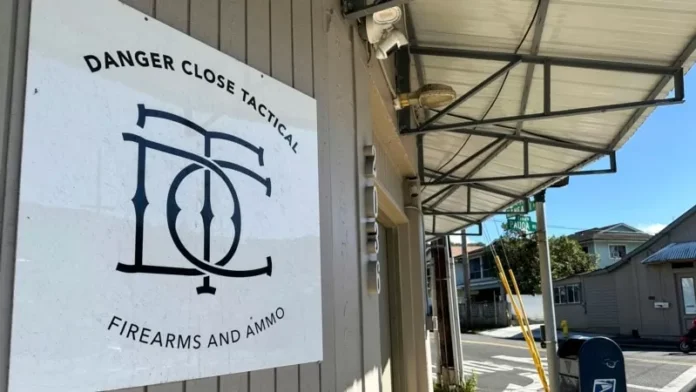HONOLULU, HAWAII – The right to bear arms has always been a contentious issue in the United States, stirring up passionate debates about individual freedoms and public safety. The latest lawsuit to take aim at Hawaii’s gun laws continues this ongoing discussion, challenging the state’s ban on gun ownership for young adults 18 to 20 years old. Second Amendment advocates argue that this restriction is unconstitutional and goes against the rights of Americans to defend themselves.
Elijah Pinales, 19, and Juda Roache, who turns 18 next month, filed the lawsuit in U.S. District Court in Honolulu on Wednesday night. According to their lawyers, both young men want to own guns for self-defense. This lawsuit highlights the fact that Hawaii is the only state in the nation with a complete ban on gun ownership for those between the ages of 18 and 20. While some states allow 18-year-olds to purchase long guns and for private party transfer of handguns, Hawaii has a blanket ban on all firearms and ammunition for this age group.
Alan Beck, one of the lawyers involved in the case and a known advocate for Second Amendment rights, has filed numerous challenges to Hawaii’s gun laws. The lawsuit also states that Roache’s mother wants to give him a firearm and ammunition. However, federal law currently requires a person to be 21 to purchase a handgun from a licensed firearm dealer and 18 to buy a long gun from a dealer, according to Everytown for Gun Safety. There is an 18-year-old minimum for handgun purchases from unlicensed sellers, and there is no minimum age for long guns, according to the group’s research.
Chris Marvin, a Hawaii resident and member of Everytown, noted that many states are raising the age for purchasing firearms and ammunition. He pointed to a recent federal appeals court ruling in Colorado, which upheld the state’s law raising the age to purchase a gun from 18 to 21. Furthermore, New York and Illinois also have strict laws limiting the possession of firearms for those under the age of 21, according to David Pucino, legal director and deputy chief counsel for the Giffords Law Center to Prevent Gun Violence.
Pucino makes a valid point that Hawaii’s strict gun laws have led to one of the lowest gun death rates in the country. He emphasizes that this is not a coincidence but rather a result of the state’s commitment to keeping its citizens safe. However, this has not stopped some from attacking Hawaii’s gun laws at every turn. The lawsuit filed by Pinales and Roache highlights how extremists continue to disregard the state’s efforts to prevent gun violence.
According to Everytown, firearms are the leading cause of death for young people between the ages of 18 to 20, and the firearm suicide rate in this age group has risen by 41% in the last decade. Additionally, 18- to 20-year-olds commit gun homicides at a rate three times higher than those 21 and older. These shocking statistics only strengthen the argument for stricter gun laws, but the state’s attorney general’s office has declined to comment as they have not been served with the complaint.
The lawsuit argues that there can be no real argument that adults under 21 are not part of the national community. After all, 18-to-20-year-olds have the right to vote and are considered full-fledged members of society. They are also allowed to serve in the military, making it even more significant that they are not allowed to own a firearm for self-defense.
This lawsuit is taking place as Hawaii is still dealing with the aftermath of a 2022 U.S. Supreme Court decision that ruled that individuals have the right to carry firearms in public for self-defense. Dubbed the “Bruen decision,” this has caused a significant shift in gun laws across the nation, with the court stating that modern firearm laws must be consistent with the country’s historical tradition of firearm regulation.
The lawsuit highlights the fact that there is no historical tradition of prohibiting the purchase and ownership of firearms and ammunition by adults under 21. In fact, the nation’s founding figures such as Aaron Burr and James Monroe, both enlisted in the Continental Army at the ages of 19 and 18 respectively, using their own arms and ammunition. This further strengthens the argument that Hawaii’s gun ownership ban for young adults is unconstitutional, especially since it has been in place since 1994.
The lawsuit also criticizes Hawaii

